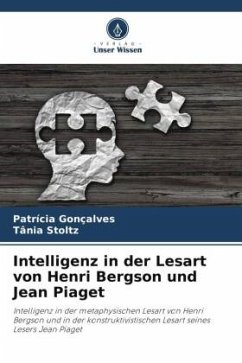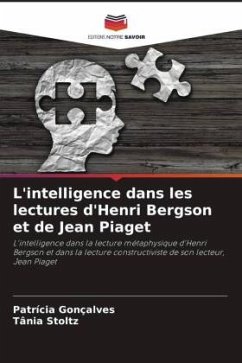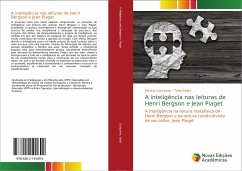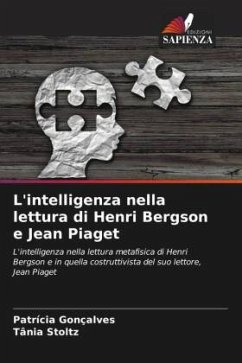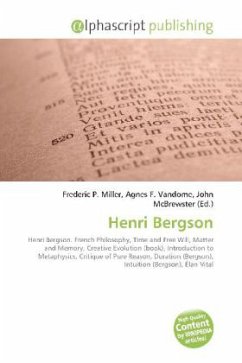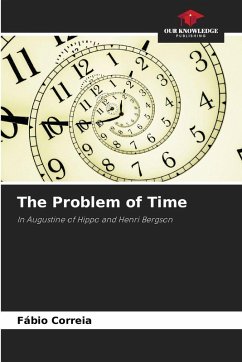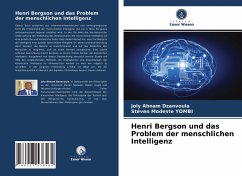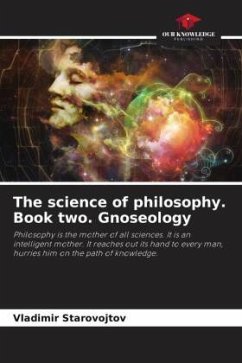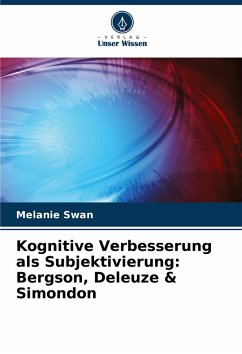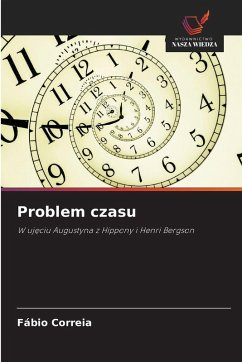
Intelligence in the readings of Henri Bergson and Jean Piaget
Intelligence in the metaphysical reading of Henri Bergson and in the constructivist reading of his reader, Jean Piaget
Versandkostenfrei!
Versandfertig in 6-10 Tagen
37,99 €
inkl. MwSt.

PAYBACK Punkte
19 °P sammeln!
This text aims to understand the concepts of intelligence in the readings of the authors Henri Bergson and Jean Piaget, analysing the convergent and divergent points related to their theories. This analysis initially aims to describe the structure, functions, limits, development and origin of intelligence, insofar as they are the objects of research by each of these authors, against the backdrop of the question of creation. In fact, Bergson approaches intelligence as a mode of human action on the environment in which it is inserted, through the manufacture of objects that can enable and facili...
This text aims to understand the concepts of intelligence in the readings of the authors Henri Bergson and Jean Piaget, analysing the convergent and divergent points related to their theories. This analysis initially aims to describe the structure, functions, limits, development and origin of intelligence, insofar as they are the objects of research by each of these authors, against the backdrop of the question of creation. In fact, Bergson approaches intelligence as a mode of human action on the environment in which it is inserted, through the manufacture of objects that can enable and facilitate its action. In this sense, intelligence favours eminently practical action, initially determined by the interests of human survival. Piaget, for his part, draws attention to the fact that intelligence is a process in which we start from a lower level of knowledge to build a higher level of knowledge, in which the human being assimilates the stimuli provided by the environment and accommodates them, balancing and accommodating new knowledge with existing knowledge in a process called equilibration.



